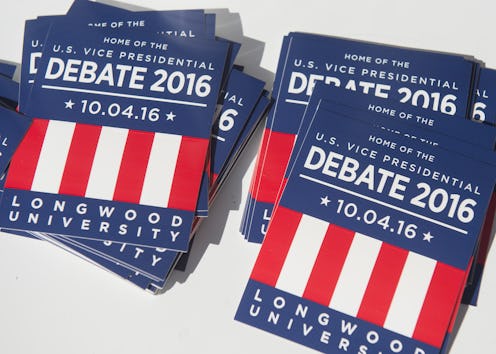News
It's Really Important To Know The VP Candidates
As Mike Pence and Tim Kaine prepare to take the stage for the first and only vice presidential debate of the 2016 election, a large number of Americans don't know who they are. Amid the massive amount of media coverage and public attention the election has drawn — the first presidential debate drew a record number of viewers — the vice presidential candidates have been largely left out of the spotlight. But we should know who could be vice president in 2017 and beyond, because that office comes with a lot of power.
A survey conducted by SSRS and ABC News asked participants to identify the running mates of Donald Trump and Hillary Clinton. 41 percent couldn't name Pence, and 46 percent didn't know Tim Kaine is Clinton's running mate. The office of the vice presidency hasn't always come with many significant or called-upon responsibilities; it was created primarily to make sure someone was on deck in case the president dies in office. Another historical duty is casting a vote on legislation in case it ties in the Senate — something that we don't see all that often. But today, the vice presidency involves a lot more than being a tiebreaker or an understudy for the role of president, so an informed voter would do well to get to know the people vying for that position.
As the United States Senate website explains, the position has evolved to include an important advisory role. The vice president tends to meet frequently with the president to discuss policy matters. They work to influence both the president and the public on policy, and it's common for them to make public speeches. The vice president often takes trips to visit and discuss political issues with leaders and high officials of foreign governments as well.
Based on its rather ambiguous description in the Constitution, the extent of power the vice president should be afforded is a topic of debate, and one that each president may answer differently. Possibly the most powerful vice president in terms of decision-making responsibilities was Dick Cheney, who had a heavy hand in developing policies in George W. Bush's administration, such as extensive, and sometimes secretive, counterterrorism measures implemented after September 11, 2001. In the subsequent administration of Barack Obama, Joe Biden has scaled back the powers of vice president and adopted a more typical role as ally, advisor, and advocate for the administration.
Because of their potential influence on the president, the public, and leaders around the world, vice presidents are important. Get to know Pence and Kaine for an idea of how they might wield their influence.
